On the morning of November 23, under the direction of Vice Chairman of the National Assembly Nguyen Duc Hai, the National Assembly listened to the Presentation and Report on the examination of the draft Law on Digital Technology Industry.
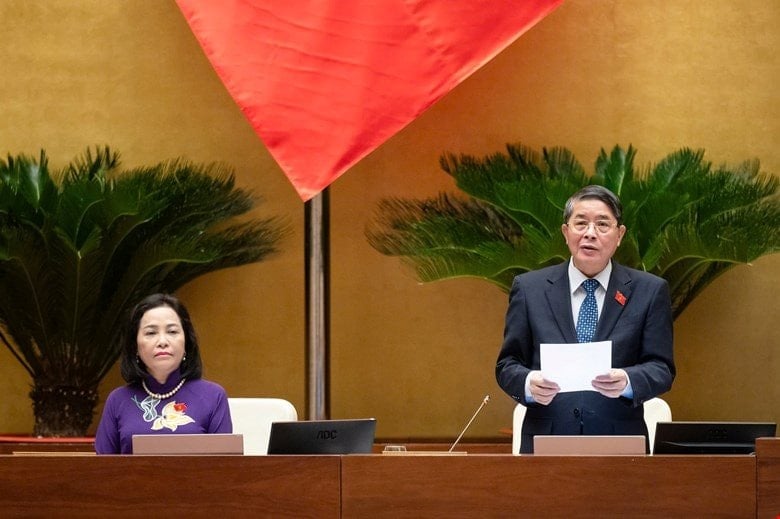
Building digital government, developing digital economy and digital society
Presenting the Government's Proposal, Deputy Prime Minister Le Thanh Long said that the purpose of promulgating the Law project is to develop the digital technology industry into an economic sector that contributes greatly to the country's economy; create the most favorable environment to nurture and develop digital technology enterprises. Develop the digital technology industry with a focus on Vietnamese digital technology enterprises, gradually shifting from assembly and processing to innovation, design, integration, production, and mastery of core technology in Vietnam; contribute to building a digital government, a driving force for the development of the digital economy and digital society.
According to Deputy Prime Minister Le Thanh Long, the basic content of the Draft Law clearly shows the necessary contents to develop the digital technology industry. Regarding research and development of digital technology, the Draft Law has stipulated a number of contents on prioritizing the development of research forces, teams of experts and high-quality researchers; forming modern research facilities, centers and laboratories; building and implementing key digital technology research and development programs, focusing on core digital technologies; having policies to encourage technology corporations to invest and establish digital technology research and development centers in Vietnam.
Regarding infrastructure development for the digital technology industry, the draft law encourages the mobilization of social investment resources in combination with state investment resources to build and develop digital technology industry infrastructure such as: National digital technology industry information system; data processing and storage center; research and development center/institute; digital technology zones ensuring modernity, synchronization in accordance with national planning, industry, regional and local planning.
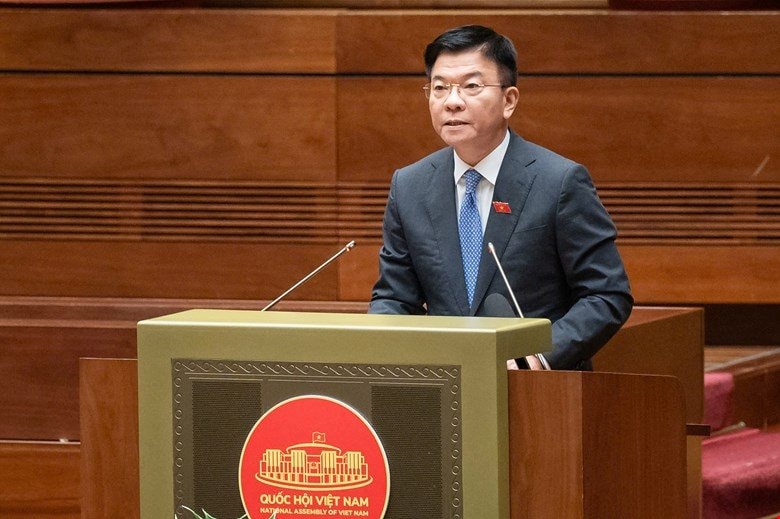
According to Deputy Prime Minister Le Thanh Long, regarding the development of digital technology enterprises, the draft law provides policies to develop the market for digital technology enterprises through prioritizing investment, purchasing domestic products and services; developing domestic and foreign markets for digital technology enterprises; incentives for enterprises' production of digital technology products and services; and a controlled testing mechanism to promote innovation of digital technology enterprises.
Regarding human resources for the digital technology industry, the draft has policies to develop human resources to meet the quantity and quality requirements of the digital technology industry, focusing on mechanisms to attract high-quality digital technology human resources, develop professional digital technology human resources; encourage and expand new training models.
Regarding incentives for digital technology industry activities, the draft Law stipulates incentives for the digital technology industry based on the principle of referring to current incentive regulations in the laws on investment, tax, credit, high technology, etc. In addition, the draft Law stipulates a number of additional key incentives for a number of special and specific projects in the field of digital technology industry, focusing on key products, software, semiconductors, artificial intelligence, artificial intelligence data processing and storage centers, digital technology research and development centers, research investment and support for digital technology transfer.
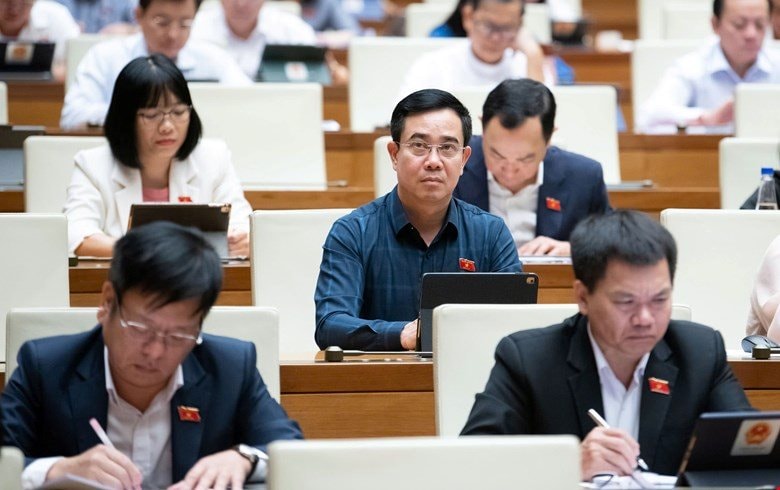
Specify in the Law a number of policies such as supporting training and human resource development.
Reviewing the draft Law, Chairman of the National Assembly's Committee on Science, Technology and Environment Le Quang Huy said that the Committee basically agrees with the necessity of promulgating the Law on Digital Technology Industry. The draft Law dossier is basically qualified to be submitted to the National Assembly for consideration and comments at the 8th Session. He requested that the drafting agency continue to review the draft Law with other laws that have been promulgated or are in the process of being drafted and promulgated, international treaties to which Vietnam is a member during the process of finalizing the draft Law, avoiding overlap with related laws, improving the normative nature of the provisions in the draft Law, ensuring feasibility, and meeting the objectives of drafting the Law.
Regarding the scope of regulation, Mr. Le Quang Huy said that many opinions agreed with the scope of regulation of the draft Law. However, some opinions are still concerned about the scope of regulation of the draft Law which may overlap and intersect with a number of related Laws such as the Law on Information Technology, the Law on High Technology, the Law on Science and Technology, the Law on Electronic Transactions, etc. There are opinions suggesting to consider not completely eliminating the fields of national defense, security, and cryptographic activities from the scope of regulation of the draft Law unless there are other laws regulating these fields.
Regarding the policy for developing the digital technology industry, to promote the strong development of the digital technology industry, it is necessary to have clear, feasible, and strong policies, focusing on core factors for developing an industry such as research and development (R&D), infrastructure, finance, human resources, market, standards, and regulations. Therefore, it is recommended to study, supplement, adjust, and specify in the Law a number of policies such as supporting training and human resource development; incentives on land, tax, finance, and investment; using domestic digital technology industry products and services; supporting enterprises to proactively deploy new business lines, buy and sell, merge startups, and link to develop ecosystems.
Regarding digital human resources, the Committee basically agreed and proposed to clarify the content and supplement a number of regulations on developing digital human resources, developing digital human resources training facilities, attracting high-quality digital human resources, and a digital technology competency framework.
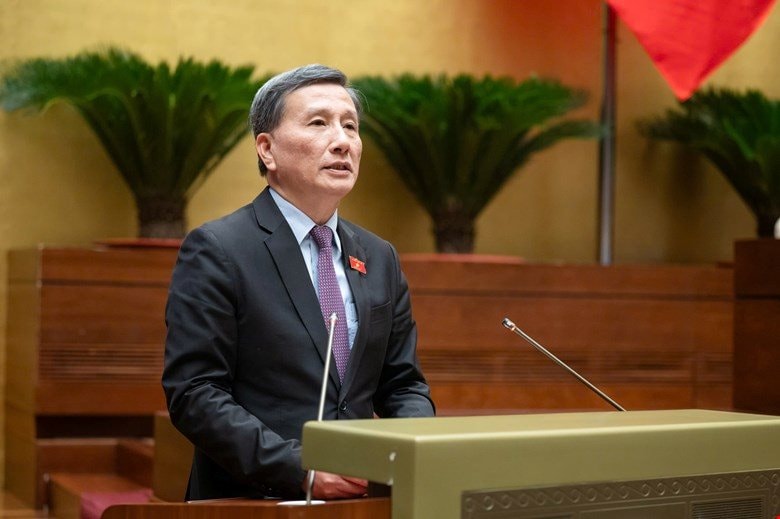
Regarding the development of digital technology enterprises, the Chairman of the Committee on Science, Technology and Environment agreed with the need for regulations on support and incentives for CNS enterprises. However, it is recommended to study, amend and supplement specific, superior and feasible policies; study and promulgate policies to attract foreign investment, capital and reasonable tax incentives; study and supplement regulations on the mechanism for allocating state budget resources for research and application of science and technology for state-owned enterprises with sufficient capacity assigned to research and produce key national digital technology products.
Regarding the semiconductor industry, the Committee for Science, Technology and Environment agreed that it is necessary to have regulations on the development of the semiconductor industry in the Law on Digital Technology Industry. It is recommended to study and have outstanding and feasible incentive policies; consider adding some regulations on incentive policies for experts and scientists; regulations on ensuring the provision of infrastructure, especially clean electricity and clean water; study and add regulations on stimulating demand and developing the domestic market for semiconductor products manufactured by domestic enterprises; and more clearly define the responsibilities of foreign investors in the training of high-quality human resources, technology transfer, machinery, equipment, etc. as appropriate.
Regarding artificial intelligence, Mr. Le Quang Huy said that some opinions believe that the provisions as in the draft Law are basically reasonable. However, there are opinions that comprehensive research is needed to build a separate law on artificial intelligence (AI) in Vietnam. The Committee on Science, Technology and Environment believes that at this time, Vietnam needs to have a legal basis to regulate artificial intelligence to develop the strengths and advantages of AI while limiting adverse impacts in research, application and development of AI technology. Therefore, it basically agrees with the necessity and scope and level of regulations on AI systems in the draft Law. However, it is necessary to study and supplement regulations to limit the risks and impacts of AI technology on economic and social life.
On the same morning, the National Assembly discussed this draft Law in Groups.
The Draft Law on Digital Technology Industry consists of 8 Chapters and 73 Articles. Specifically: Chapter I. General provisions; Chapter II. Development of the digital technology industry; Chapter III. Development of digital technology enterprises; Chapter IV. Controlled testing mechanism; Chapter V. Semiconductor industry; Chapter VI. Artificial intelligence; Chapter VII. State management of the digital technology industry; Chapter VIII. Implementation provisions.
Source: https://baotainguyenmoitruong.vn/phat-trien-cong-nghiep-cong-nghe-so-thanh-nganh-kinh-te-dong-gop-lon-vao-kinh-te-dat-nuoc-383565.html


![[Photo] Magical moment of double five-colored clouds on Ba Den mountain on the day of the Buddha's relic procession](https://vphoto.vietnam.vn/thumb/1200x675/vietnam/resource/IMAGE/2025/5/9/7a710556965c413397f9e38ac9708d2f)




![[Photo] Prime Minister Pham Minh Chinh chairs a special Government meeting on the arrangement of administrative units at all levels.](https://vphoto.vietnam.vn/thumb/1200x675/vietnam/resource/IMAGE/2025/5/9/6a22e6a997424870abfb39817bb9bb6c)
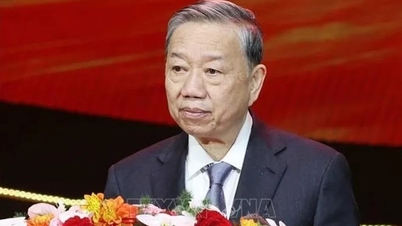





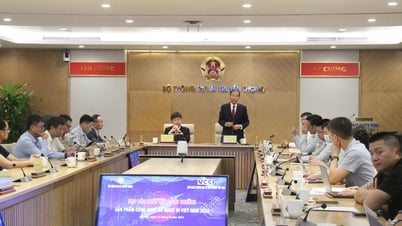
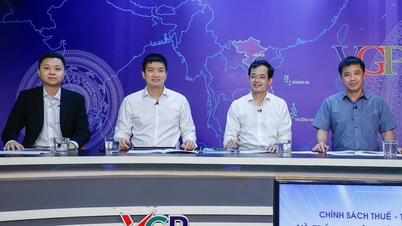





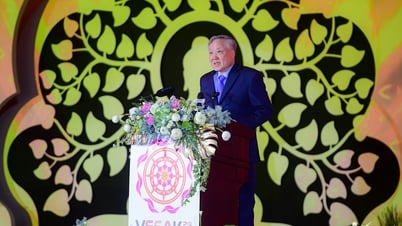















































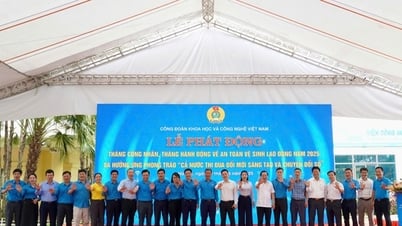



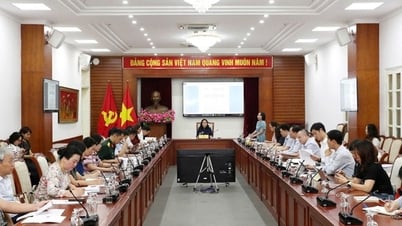

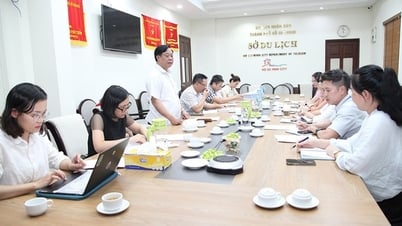
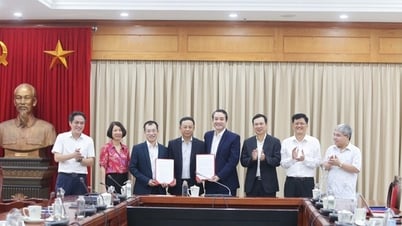




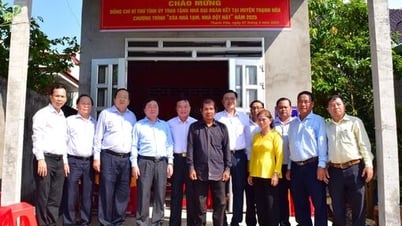

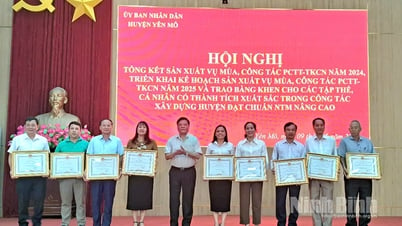















Comment (0)